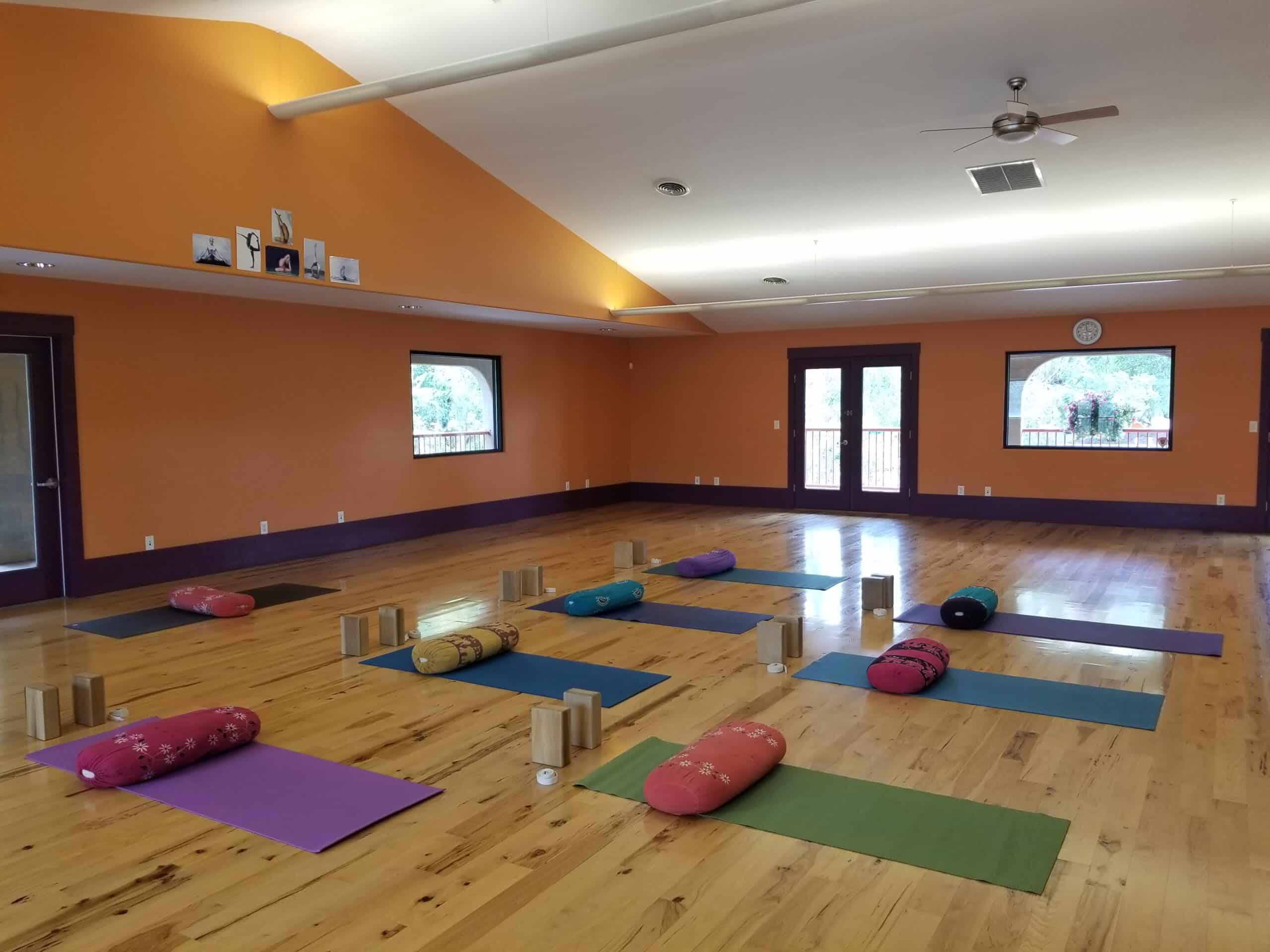The Crucial Need for Trauma-Informed Training | By Carly Lanning
Yoga is a deeply personal practice. It’s one of the biggest reasons so many of us are drawn to the mat. It provides a container within our lives for personal connection, reflection, and for so many, healing – making the role of the yoga teacher deeply impactful in providing a trauma-informed experience.
“It’s incredibly important for yoga teachers and wellness professionals to be trauma-informed because nearly every person has experienced trauma at least once in their lifetime, even if they don’t recognize or identify with the trauma,” shares Trainer and Teacher with Exhale to Inhale Jenna Conner. “When we are working with people, it is likely that we will encounter someone who has experienced trauma each day we show up to offer our services. When we use the tools of trauma-informed yoga we can help people navigate some kind of path to healing or some sense of normality.”
In the United States, over 70% of adults have experienced at least one type of traumatic event in their life. This means that as a yoga teacher, every class you lead will include numerous survivors of trauma, whether self-identified or not. With trauma being unique to each individual, students’ triggers and needs vary. This makes your knowledge of how to navigate – as a teacher – your language, actions, and presentation of choices in a trauma-informed and survivor-centered way one of the most valuable tools available to you within the wellness space. This lense will not only enhance the experience of the students currently in your classes, but also allow you the opportunity to make your classes more accessible and inclusive to an even larger community.

Photo Credit: Grant Henry, House of Flow (@houseofflow.co) | 2019 Exhale to Inhale Training Graduate and Scholarship Recipient
The goal of trauma-informed yoga, and trauma-informed care in general, is to foster post-traumatic growth. It’s using language, breathing, and guided movements to help individuals feel agency over and awareness within their bodies in order to support their healing journey. It is designed with a knowledge of how trauma impacts the body and introduces practices that help survivor’s navigate and work through different triggers that may be coming up for them physically, mentally, or spiritually. It also excludes some outdated and harmful teaching practices including not communicating about hands-on assistance, setting a singular agenda for the entire class, and not using inclusive or voluntary language.
Along with providing trauma-informed yoga classes to our clients and community, a large part of our work here at Exhale to Inhale (ETI) is leading trauma-informed yoga teacher training and scholarships. Between 2016 and 2022, ETI trained over 900 individuals through our trauma-informed teacher training sessions. These training sessions are open to yoga teachers, healthcare workers, and wellness practitioners across all different types of disciplines with the purpose of building knowledge around how trauma impacts the body and providing tangible ways to adapt one’s work (and language) to better support survivors of trauma.
A previous Exhale to Inhale scholarship recipient and trainee recently shared, “I left this training feeling more educated and aware of trauma and how yoga relates to trauma as a healing modality.”
Each year, Exhale to Inhale awards 25 full scholarships with supportive education elements to teachers who want to learn trauma-informed methods. Although the scholarship season has come to an end, interested participants can still take the training this November.
In November, Amy Apgar will be leading ETI’s upcoming teacher trainings listed by date on our website. These trainings include lecture, group discussion, and embodied-practice. By taking these trainings, participants gain knowledge around how to:
● Make wellness spaces more inclusive
● Better understand and serve their clients’ needs
● Empower clients to choose options that are right for them in that moment
● Use inclusive language that turns practices or poses into invitations
● Encourage safety, self-love, and the creation of healthy boundaries
● Engage with diverse populations and offer a customized trauma-informed experience
“These trauma-informed spaces are more important than ever,” explains Jenna Conner. “Everyone has witnessed or experienced a collective trauma over the past year (and continuing on) and whether we know it or not, it affects our way of being. For individuals to show up with trauma-informed knowledge means that more folks will have access to accessible and resonant spaces to grow, heal, and learn more about themselves.”
Trauma-informed yoga is a healing tool accessible to students anytime, anywhere. For many, this practice has helped to significantly decrease their anxiety, bodily pain, and increase their sense of personal agency. In order for students to continue growing and healing, we need practitioners who are knowledgeable and mindful of how to set up a space and practice that is inclusive and safe for all students – especially now.
Carly Lanning is a trauma-informed journalist and founder of Voices Editorial, an editorial consultancy dedicated to providing trauma-informed storytelling and strategy services to anti-violence organizations and survivor communities around the country. She’s previously been published in SELF, Psychology Today, NBC, Ms. Magazine, and more.
Not every nutrition shake is created equal and LyfeFuel’s is top tier. Made with 50+ whole food nutrients [...]

Subscribe to Our Tribe
Stay up to date with Y+L News, Events and special announcements.










